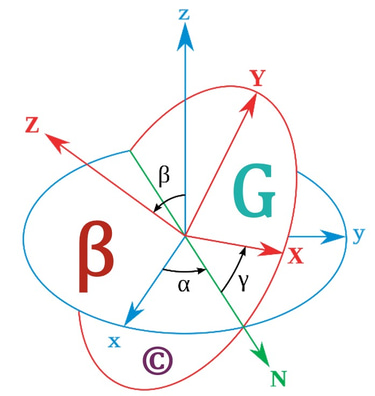The Role of Education in Promoting Renewable Energy
The transition to renewable energy isn’t just about technology and policy—it’s also about people. Education plays a critical role in driving the adoption of clean energy by raising awareness, building skills, and inspiring action. From schools and universities to community programs and online resources, education is empowering individuals and communities to embrace renewable energy and build a sustainable future. In this blog, we’ll explore how education is shaping the renewable energy landscape and why it’s essential for a successful energy transition.
ELECTRICAL ENGINEERINGSUSTAINABILITYENERGY
Engr. Benjamin V. Gonzales Jr.
5/26/20252 min read
Why Education Matters in Renewable Energy
Education is the foundation of the renewable energy revolution. Here’s why it’s so important:
Raising Awareness: Many people are unaware of the benefits of renewable energy or how to access it. Education helps bridge this knowledge gap.
Building Skills: The renewable energy sector requires a skilled workforce, from engineers and technicians to policymakers and entrepreneurs.
Inspiring Action: Education empowers individuals to make informed choices, from installing solar panels to advocating for clean energy policies.
Fostering Innovation: By teaching the next generation about renewable energy, we inspire new ideas and technologies that can accelerate the energy transition.
Renewable Energy in Schools and Universities
Educational institutions are playing a key role in promoting renewable energy:
Curriculum Integration: Schools and universities are incorporating renewable energy topics into science, technology, engineering, and mathematics (STEM) programs.
Hands-On Learning: Students are gaining practical experience through projects like building solar-powered cars or designing wind turbines.
Research and Innovation: Universities are leading the way in renewable energy research, developing new technologies and solutions.
Campus Sustainability: Many schools are installing solar panels, wind turbines, and other renewable energy systems to power their campuses and serve as living laboratories.
Community Education and Outreach
Education isn’t limited to classrooms—community programs are also driving renewable energy adoption:
Workshops and Seminars: Local organizations and governments are hosting events to teach people about renewable energy options and benefits.
Online Resources: Websites, webinars, and social media platforms are making renewable energy education accessible to everyone.
Demonstration Projects: Community solar gardens, wind farms, and energy-efficient buildings serve as real-world examples of renewable energy in action.
Youth Programs: Initiatives like solar clubs and green energy competitions engage young people in renewable energy and sustainability.
The Benefits of Renewable Energy Education
Investing in renewable energy education offers numerous benefits:
Empowered Communities: Educated individuals are more likely to adopt renewable energy and advocate for clean energy policies.
Job Creation: A skilled workforce is essential for the growth of the renewable energy sector, creating new opportunities and boosting local economies.
Environmental Impact: Education drives behavior change, leading to reduced energy consumption and lower carbon emissions.
Innovation and Leadership: By fostering a culture of innovation, education ensures that the renewable energy sector continues to evolve and thrive.
Challenges and Solutions
While renewable energy education is essential, it faces challenges:
Limited Resources: Many schools and communities lack the funding and tools to teach renewable energy effectively. Grants and partnerships can help address this issue.
Accessibility: Not everyone has access to quality education or the internet. Outreach programs and community initiatives can help bridge this gap.
Keeping Up with Technology: The renewable energy sector is rapidly evolving, and educational programs must stay current. Continuous professional development and curriculum updates are key.
How You Can Support Renewable Energy Education
Interested in promoting renewable energy education? Here’s how you can get involved:
Volunteer: Offer to teach a workshop, mentor students, or support renewable energy programs in your community.
Advocate for Policy Change: Push for renewable energy education to be included in school curricula and community programs.
Support Organizations: Donate to or volunteer with organizations that promote renewable energy education, such as the Solar Foundation or local green energy groups.
Lead by Example: Install renewable energy systems at home or work and share your experience with others.
The Future of Renewable Energy Education
The future of renewable energy education is bright. Here’s what’s on the horizon:
Virtual Learning: Online platforms and virtual reality (VR) tools will make renewable energy education more interactive and accessible.
Global Collaboration: International partnerships will share knowledge and resources, accelerating the adoption of renewable energy worldwide.
Lifelong Learning: As the renewable energy sector evolves, continuous education will be essential for professionals and the general public alike.
Conclusion
Education is the key to unlocking the full potential of renewable energy. By raising awareness, building skills, and inspiring action, education empowers individuals and communities to embrace clean energy and build a sustainable future. Whether you’re a student, teacher, or lifelong learner, you have a role to play in the renewable energy revolution.





